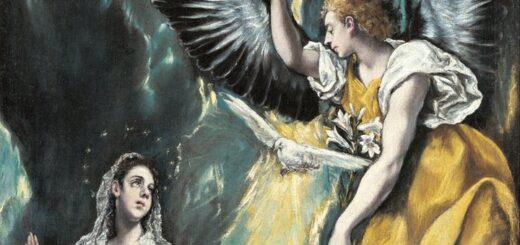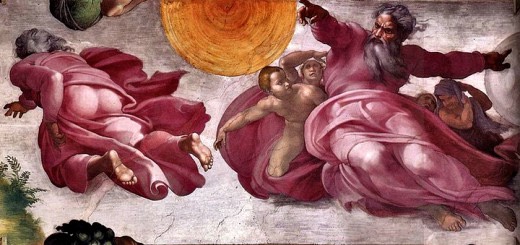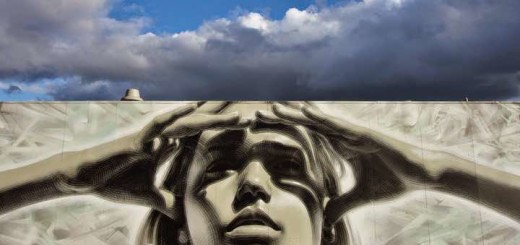Relations. There is no personal identity without a relationship (GN.2, 3; MC 7, 24-30)
Lectio by Don Giovanni Martini* Tenuta allaMeeting of the "7 words" on "Relationships"(Gn.2, 3; MC 7, 24-30) of Kairos group of Florence on 4 December 2024
"From the Bible there is no definition of the essence of man, but rather an articulated consideration of his being as a subject of multiple relationships. In other words, we can grasp what writing reveals of man only if the relationships that the human creature entertains with the whole of reality are explored. The laudato si 'of Pope Francis (§ 66) speaks of three fundamental relations, specifically the one with God, with others and with the earth.
Others arise from them, such as that of the relationship to time, work, law, social institutions, and so on. It is certainly useful therefore to consider the components of the human being in himself, but this must still be seen in the context of a series of relationships, so that man is not considered only in the aspects that characterize him as a single individual, but also in the His condition of "Son" (of God and of man), of "brother" and collaborator responsible for the fate of all.
And with this the man is included in his "vocation", because only in justice and love the nature of the person is realized. This consideration will be constantly held in mind in carrying out this document "[1].
Not, it was easy to materialize this lectio of tonight, especially in seeking reference biblical texts also because all the authentic experience of the Jewish-Christian faith speaks to us of a God who is a relationship. Just think of the fundamental concept of the first testament which is that of the alliance (berit)[2].
Man (Adam = the earth) or rather humanity is created as something deeply relational, for which loneliness is something"Not good" ;
"The Lord God said:" It is not good that man is alone: I want to make him help that he corresponds to him "[3]. (Gn.2,3)
A new narrative development is marked by the divine observation expressed in the rather surprising sentence: «It is not good (Lō 'ṭôb) that man is alone "(Gen 2:18). Compared to the parallel text of Gen 1, in which the expression repeatedly resounded: «And God saw that it was a good thing (ṭôb) "(Gen 1,3.10.12.18.21.25.31), we have in Gen 2 a different expressive system, which begins from what is incomplete and inadequate to show how creation progressively reaches its full fulfillment. What is imperfect is the fact that'ādāmbe "only". The Jewish adverbial expression (LisBaddô),Translated with the adjective "only", if it is attributed to God, it indicates its statute of being unique and Salvatore (ES 22.19; 1 Sam 7,3-4; Is 2,11.17; Ps 72,18; GB 9 , 8), while, referring to man, expresses insulation and helplessness (Gen 32,25; 42.38; 2 Sam 17,2).For this reason, the Creator comes to the rescue of'ādām, providing him with a "help" ('ēzer), or perhaps better an "ally" (cf. 2 Kings 14,26; Is 31.3; Ps 30,11; GB 29,12; Sir 36.24), which not only free it from the presumptuous idea of being The only living on earth, but above all Cooperi with man in the implementation of the task assigned to him by God.It is specified that the Creator wants help that he is, literally,"As in front of him" (kisNegdô).The Jewish phrase - attested only in Gen 2,18.20 - has received different translations and interpretations; Not being adequately realized with the creation of animals (Gen 2, 20), it is therefore indirectly applied to the relationship between man and woman (Gen 2,23) to express equality and reciprocity. In the context that we are commenting on, and therefore with reference to the divine work of shaping animals, it seems, for now, more simply saying that the Creator intends to help the human being by putting in front of him visible, concrete help, suitable for making him come out , at least in some way, from his "solitude".
From this text we understand that the human is a relationship, it is otherness. Where, sexual difference is a parable of any otherness. The human is truly such when the relationship lives but every difference of difference involves tension and conflict. The man-woman relationship is the epiphany of difference and mutual otherness. Only in the relationship does the human find life and happiness, but the relationship should be learned, ordered, exercised, because in it it is necessary to dominate the Egolatria present in each, which in the relationship manifests itself as violence.
For the second chapter of Genesis, which is the oldest story, therefore the human, is a being in relation to the earth from which it is taken, with animals as an animal, with the other by itself that has its own breath of life received by God and finally with God himself. It is in this bundle of relationships that the human, humanizes.
But the text of the first chapter of Genesis is also intriguing where the author reflects before the creation of humanity; We listen to it in a challenge version of the Hebrew:
"And 'Elohim said: we make Adam in our image, like our resemblance: dominate the fish of the sea, the birds of the skies, the cattle, the whole earth and every creeping on earth. And 'Elohim created ha-'adam in his image, in the image of' Elohim he created it, male and female created them"(Gen 1,26-27).
Also this more recent text reminds us that the human being is in itself a relationship. Humans are the image of God, each of them in humanity in which it is part.
He recently wrote a good theologian Debora Rienzi:
"… Adam is Ish and Ishà, where the Ishsignifica root “Start", To which it is addedAhto get"What proceeds from Ish", that is, what leads to fulfillment. There is a progression in differentiation, and the direction is the fulfillment that leaves nothing behind. Compared to the relationship between male and female, what emerges here is the goodness of the differentiation itself, to which it is not necessary to apply a value judgment. It is a question of recognizing and welcoming the reality of difference as a value in itself, to overcome the temptation, infantile on the evolutionary level of homogeneity.
Symbolically, moreover, "A "differentiation stands for all differentiations: it is the differentiation in itself that is considered, not the fact that they are specifically of the male and female one, which are risen from archetypes of diversity. Diversity must be accepted in its multiplicity of forms, even on the level of sexual identities: each one must take this passage of fulfillment towards its own constitutive dimension ..."(Debora Rienzi - God remains - Cittadella publisher 2023, p. 166)
This text also reminds us that the human being is in itself a relationship. Humans are the image of God, each of them in humanity in which it is part, in themselves are united and complement each other accepting the mutual difference.
We are all made in the image and likeness of God, we are of the same pasta, and one of the existential truths of our faith is that the God in which we believe is not solitude but fullness of relationship. In "technical" language we say that our God is a Trinitarian god, he is Trinity or as Don Tonino Belino Tri-unity loved. It is a communion of life between Father-Figlio-Spirito Santo.
It has been written that God involves the human, the terrestrial, in a dynamic in which the relationships between the people of the Trinity are in a relationship of service, proximity, interdependence: a beingfor, a beingwith,a beingwithanother that defines their identity precisely through their relationship. There is therefore no personal identity without relationship. So it is also for each of us, when we mirror each other in each other and at the same time we differentiate ourselves, progressing in the self -awareness of our identity.
And Jesus reveals, with his works, his words and his corporeality, the true face of God that no one has ever seen remains for each of us a lighthouse that illuminates our lives. Following him, assimilating us to him we become even more aware of our dignity.
Jesus offers us many examples of "man" in relation. Not only in its divine-Trinitarian reality because it has always been aimed at his father, but also in his true humanity capable of authentic and freely free relationships with others; There are many examples
With you I would like to dwell on an episode that has always struck me in the relating to Jesus and with the "different" by itself to better understand his identity and mission.
"He left there, he went to the shooting region. Entering a house, he didn't want anyone to know it, but he could not remain hidden. A woman, whose little daughter was possessed by an impure spirit, as soon as he knew of him, went and threw himself at his feet. This woman was of Greek language and of Siro-Fenician origin. She begged him to drive away the devil from his daughter. And he replied: "He leaves his children before he knows, because it is not good to take the bread of his children and throw him to the dogs". But she replied: "Lord, even the dogs under the table eat the crumbs of the children". Then he said to her: "For this word, go, go ': the devil came out of your daughter." Returning to her house, she found the girl lying on the bed and the devil was gone"(Mk 7,24-30).
This episode that Marco tells us is the culmination of an itinerary that lives Jesus and that makes Jesus a turning point in his experience; It is proof of how the encounter with the other can change us or rather can make us better understand our identity, it can bring our identity to complete.
Here Jesus performs an itinerary of a deeper and full understanding of himself and his mission of being bread for everyone.
The woman is Greek and Siro Fenicia. At most it represents total otherness with respect to Jesus who is a man and Jew, belonging to the people of the alliance. In fact, Jesus in the first instance self-disclosed as a correspondent, "first" to Israel and then from Israel to all peoples.
But the insistence of the woman "his word" or for Matteo his faith, causes an event; which is not only the healing of his daughter, but also a "conversion into the way of thinking of Jesus as Messiah". Jesus understands from the encounter with the other by himself that his being Messiah is a messy being for everyone.
Some suggestions:
- What the other says of my identity?
- How do I report to the faith of the other and to the other faith?
- The encounter with the other if it is authentic produces salvation and not necessarily neither conversion nor seduction.
* Don Giovanni Martini (Di Mario), parish priest in Florence of the parish of Santa Maria al Pignone is director of the diocesan office for migration.
________
[1]Pontifical biblical commission,"What is man?" (Ps 8.5). An itinerary of biblical anthropology,2019, n.10
[2]The term Alleanza in Hebrew is saidberith, and it means exactly"Between two"; some make it derive from the wordBarah,Which means eating and also deciding, committing. These references make us understand that the alliance is something that takes place between two subjects, which however also has relevance with a meal and with a decision and a commitment.
[3](ʿṢmer Kenegdô). The Jewish expression has been translated into several ways:
1. The term"help"ʿĒmer appears in the AT 21 times. In most cases it is a predicate that has God as a subject.
2. Both in the subjective sense of "help of God" (Dt 33,26; OS 13,9; Ps 20.3; 89.20; 121.1.2; 124, 8; DN 11,34), and also in the sense of divine title (Ex 18.4; Dt 33.7.29; Ps 33.20; 70.6; 115.9.10.11; 146.5): in especially poetic contexts; with a personal and non -material rescue; in situations of mortal danger; When rescue is essential not to fall into death.
Consequently, the Jewish term expresses something indispensable to overcome loneliness and not optional; Furthermore, this is a support or support that only one person can offer the other (cf. Qo 4,9-11). The relationship to the other by itself, then, is not an option, being everyʾĀdāmMade for the relationship, dialogue, sharing, reciprocity with others ʾādām.
The expression not only brings in itself only the idea of complementarity or similarity and therefore of equal dignity and equality, but also expresses otherness and reciprocity. It could be translated as in part as the Jonatha Targum does:"A help that is in front of him"so that the meeting can take place. Enzo Bianchi pushes this interpretation even further and reads the prepositionneugedwith the sense of"against",So he proposes: "help against"
3. Each person is "the other by himself", the "you" who is facing (literally: "like his forehead") and which allows dialogue "face to face". In this sense, the woman is precisely the right help to man, because it is thought desired just like that by God ("I want to do").






